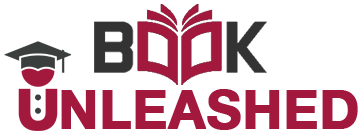In sunny Singapore, a nation known for its vibrant culture and dazzling skyline lies a heartwarming tradition that brightens the lives of the less fortunate – charitable care packs om. These small yet mighty bundles of joy have become the talk of the town, and for good reason. They’re like little superheroes, swooping in to rescue those in need. Buckle up, dear reader, as we embark on a journey to discover what care packages in Singapore are and how they make a difference.
Historical Context
Let’s rewind the tape and delve into Singapore’s history of giving. The spirit of generosity has always thrived in this city-state. From humble beginnings, where neighbours help neighbours, to organised charity initiatives, Singapore has a rich tradition of extending a helping hand
But the real star of our story is the emergence of care packs in Singapore. These little bundles of kindness didn’t just appear out of thin air; they evolved from a simple idea into a powerful force for good.
Types of Charitable Care Packs
Now, hold onto your hats because it’s time to unveil the stars of the show – the care packs themselves. There’s a care pack for almost every occasion, and they come in all shapes and sizes. Whether it’s food, hygiene essentials, or educational materials, there’s a care pack designed to tackle the specific needs of the less fortunate.
These packs are like Swiss Army knives, offering a little bit of everything to those who need it most. From the essentials to heartwarming surprises, they’ve got it all.
Initiating and Organising Charitable Care Pack Drives
So, you’re feeling inspired and want to be a hero yourself? Fantastic! Let’s explore how you can step into the shoes of a care pack crusader. Initiating and organising care pack drives may sound like a daunting task, but fear not. We’ll break it down for you, step by step.
From planning and rallying the troops to execution, we’ve got insider tips that will make your mission a resounding success. It’s all about spreading those good vibes!
Charities and Nonprofits Involved
Of course, we couldn’t have this discussion without shining a spotlight on the real champions – the charities and nonprofits that make it all happen. These organisations are the backbone of Singapore’s care pack movement.
With missions as eclectic as the contents of these care packs, they’re on a tireless quest to sprinkle stardust in the lives of the less fortunate. Get ready to uncover the unsung heroes, the backstage rockstars who make it all happen.
Impact on the Less Fortunate
Now, let’s talk about the real stars of our show – the less fortunate individuals whose lives are touched by these care packs. Their stories are the beating heart of this movement. Through their eyes, we witness the genuine impact of these bundles of care.
We’ll share heartfelt stories and testimonials that prove how something as simple as a care pack can bring smiles, hope, and a little extra sunshine into their lives.
Challenges and Solutions
Hold onto your hats, because, as much as we’d love it to be, it’s not all sunshine and rainbows in the world of charitable care packs. Just like any epic hero’s journey, formidable challenges are lurking around every corner. Think logistics, resources, and outreach – these hurdles can be as intimidating as a dragon guarding its treasure.
But, fear not, dear reader! We’re not the helpless damsel in distress here. We’ve got a toolbox that’s chock-full of solutions to these challenges. From whip-smart creative problem-solving to community engagement wizardry, we’re going to roll up our sleeves and show those obstacles who’s boss!
Sustainability and Future Outlook
As we near the end of our adventure, it’s essential to consider the sustainability of Singapore’s care pack movement. What does the future hold for these benevolent bundles of joy? We’ll take a glimpse into the crystal ball and explore the potential innovations on the horizon.

Conclusion
In a world where acts of kindness often go unnoticed, Singapore’s care packs stand as a shining example of how small gestures can make a world of difference. These packs, brimming with essentials and love, are a lifeline for the less fortunate. Contact Aleyda Academy today!




















